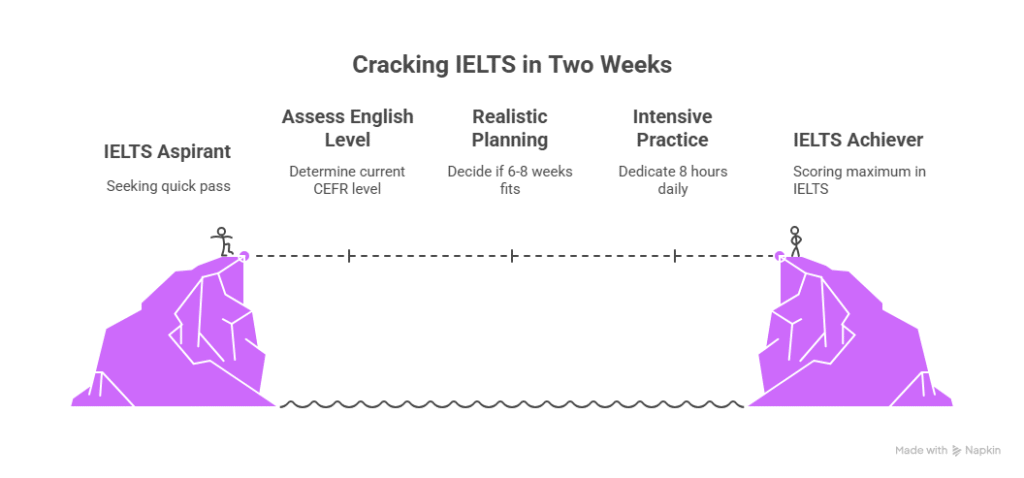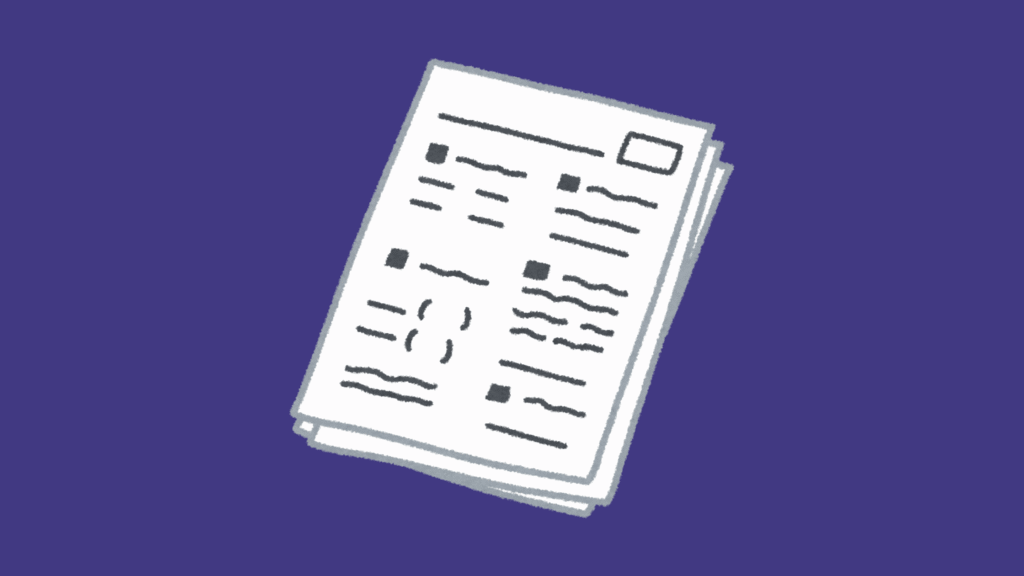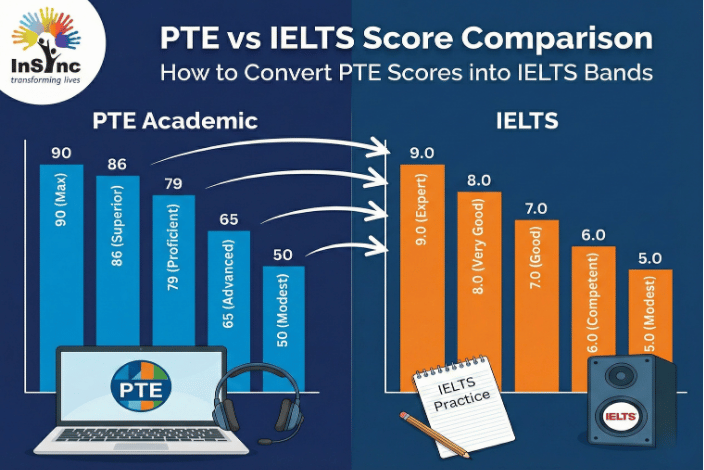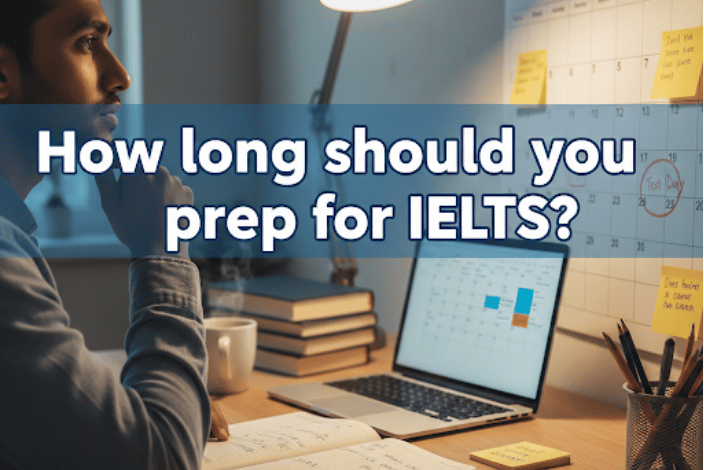Can You Prepare for IELTS in 15-30 Days and Score Band 7+? The Honest Truth!
You are squeezed for time as you need to meet college application deadlines or you apply for an express entry work visa to Canada which requires an overall 7.5 in the IELTS General module. You want to crack the test in the fastest time span as well as score the maximum.
Right now, you’re quickly searching online – “Is it possible to pass IELTS in two weeks?”
Here’s something most coaching centers won’t say right away. The Quick Answer (Because you’re in a hurry) YES, it’s doable – though only when certain requirements are met.
This isn’t some magic fix or hidden hack. It’s really knowing your starting point which is finding out about your current English level – then deciding if 6-8 weeks window fits your reality.
Here’s the moment of truth: Cambridge English Assessment says most IELTS test candidates need over 200 hours of serious practice to move up by just one level on the CEFR. Time to break it down:
- 15 days equals up to 120 hours – hit that only if you go 8 hours daily without stopping
- 30 days = Maximum 240 hours (if you study 8 hours/day)
Yeah, the schedule’s packed – still doable though.

Who Can Actually Get Band 7+ in 15–30 Days?
You’re a Strong Candidate If:
1. Your Current English Level is Already High (Band 6.5)
- You can hold conversations in English comfortably
- You check English papers now and then – also some magazines, websites, maybe a book from time to time
- You hear plenty of English tunes, catch up on streaming shows in English – so you get what people are saying most of the time
- You check out English videos with no subtitles, getting into it just like you would in your own language
2. You Have Strong Academic/Professional English Background
- Students from engineering or medicine backgrounds taught in English
- Students from CBSE/ICSE with strong English marks
- Students from Cambridge IGCSC or AS and A levels
3. You Can Dedicate 6-8 Hours Daily
- No interruptions, yet no justifications
- Full-time focused preparation
- Ready to skip hangouts for now if needed – sometimes putting things off helps you focus later
❌ This Timeline is Unrealistic If:
- Your score right now sits at Band 5.0 or lower
- You struggle with basic grammar (tenses, articles, prepositions)
- You’ve always skipped writing essays in English
- English words often seem too few when talking every day
- You’ve got to leap across two levels – say, from Band 5 straight up to Band 7 – without stopping in between
The British Council says most learners take 3 to 6 months of steady practice to jump from Band 5.0 to 7.0 – going too fast usually leads to poor results, plus they end up losing money on retests (that’s over ₹18,000 in India).
What the Official Sources Say
Cambridge English Language Assessment Guidelines;
Cambridge – known for creating IELTS – shares straightforward tips on how much time you’ll need to get ready. Cambridge says you’ll need around 200 hours or more if you want to move up by one band, though results can differ depending on how consistent you are
Learning on your own? It might get you there – just expect it to take nearly half again as much time compared to having a teacher guiding you.
Skill Development: Speaking and Writing skills develop slower than Reading and Listening
Reference: Cambridge English Assessment – Learning Hours Framework URL: https://www.cambridgeenglish.org/Images/126011-using-cefr-principles-of-good-practice.pdf
British Council’s Official Stance
British Council, a co-owner of IELTS, recommends:
At least 6 to 8 weeks – anyone aiming high, beginning at Band 6.0. But only if you’re truly committed, starting from that level.
A few months – usually between three and six – for anyone beginning under Band 6.0
Check symptoms early – before picking a test day
Reference: British Council India – IELTS Preparation URL: https://www.britishcouncil.in/exam/ielts/prepare
IDP Education’s Recommendation
IDP, another official IELTS partner, suggests:
Try a sample quiz at first – this shows where you stand now
Zero in on shaky spots instead of spreading effort everywhere
Build in extra minutes – just in case something goes off track
Reference: IDP IELTS Preparation Resources URL: https://www.ielts.org/for-test-takers/how-to-prepare
The Real Data: What Indian Test-Takers Actually Achieve
Let me share some ground realities from India (based on British Council and IDP data trends):
Average Band Scores in India (2023-2024)
Skill- average band score
- Listening- 6.5
- Reading- 5.5
- Writing- 5.5
- Speaking- 6
Overall: 6
The Writing Issue: See how Indians often trip up at Writing (5.5). That’s the area taking longest to get better, yet it’s toughest to fix fast – so progress feels slow no matter what.
Source: IELTS Official Statistics (available in annual reports on IELTS.org)
Your 15-30 Day Action Plan (If You Still Want to Try)
If you’re sticking to this schedule no matter what hurdles pop up, here’s how you move forward:
Week 1: Assessment & Foundation (Days 1-7)
Day 1: Take a FULL Mock Test
Stop right there. Here’s the truth – get clear on your position now or pay later.
Free Official Practice Tests:
- IELTS Progress Check (Paid but official scoring): https://www.ielts.org/for-test-takers/ielts-progress-check
- Free Practice Tests: https://takeielts.britishcouncil.org/take-ielts/prepare/free-ielts-practice-tests
What to do:
- Solve each of the four parts with a clock running
- Face yourself without excuses
- Figure out which part you’re worst at
- Work out a rough band score by checking the official guidelines
If you get less than 6.0 overall, think twice before taking the test – trust me, it’s better late than broke. Yeah, it sucks to wait, still rushing now could burn your cash and mess with your head.
Days 2-3: Deep Dive into Band Descriptors
- Figuring out what test graders want? That’s already a big chunk of the challenge.
- Official Band Descriptors (MUST READ):
- Writing Band Descriptors: https://www.ielts.org/for-teachers/writing-band-descriptors
- Speaking Band Descriptors: https://www.ielts.org/for-teachers/speaking-band-descriptors
Key Focus Areas for Indian Students:
- Writing: Task Response, Coherence & Cohesion, Lexical Resource, Grammatical Range
- Speaking: Fluency, Lexical Resource, Pronunciation (not accent!), Grammatical Accuracy
Take a moment: go over these descriptions carefully. Write them down on paper. See how Band 6 stands apart from Band 7 for every category.
Days 4-7: Skill-Specific Intensive Work
- Listening (2 hours/day):
- Use ONLY official Cambridge IELTS books (1-18)
- Download free: https://www.cambridgeenglish.org/learning-english/activities-for-learners/
- Practice with various accents (British, Australian, American)
- Focusing on tough spots: how words are spelled, when they get an -s at the end, or how digits behave
Reading (2 hours/day):
- Cambridge IELTS Past Papers (Official source)
- Get quick at flipping through pages + spotting key info fast
- Practice time management: 20 minutes per passage
- Focus on True/False/Not Given questions (Indian students struggle here)
Writing (2-3 hours/day):
- Write one Task 2 essay daily
- Do a graph task every couple of days – try once in two days
- Check real exam subjects at: https://www.ielts.org/for-teachers/sample-test-materials
- Check what others say – try forums or mentors
Speaking (1-2 hours/day):
- Record yourself answering Part 1, 2, and 3 questions
- Use official cue cards: https://ieltsidpindia.com/blog/common-ielts-speaking-topics
- Start by aiming for smoothness rather than perfect correctness
- Train by yourself when a partner isn’t around
Week 2-3: Intensive Practice & Error Correction (Days 8-21)
- The 80/20 Rule for Short-Timeline Prep
- Spend roughly four-fifths of your effort on the pair of areas you struggle with most. Usually for learners from India, that means these two parts
- Putting thoughts on paper – most folks struggle here
- Talking can feel tough when you’re not sure or keep stumbling over words
Daily Schedule (6-8 hours):
- Morning (3 hrs): Work on writing, then go over what you did
- Afternoon (2 hours): Reading & Listening tests
- Evening (2 hours): Chatting drills along with word expansion
- Night (1 hour): Look into mistakes, then fix them right away – using what you find to adjust next steps
Critical Resources for These Weeks
- Real test papers from Cambridge – you’ll only find them here, nowhere else.
- Available on Amazon India (₹500-800 each)
- Some libraries could hold these
- Some PDFs available legally through Cambridge website
Online Resources:
- British Council IELTS Prep App (Free): Available on Google Play Store
- IELTS.org Free Resources: https://ielts.org/take-a-test/preparation-resources/sample-test-questions
- Road to IELTS (British Council’s prep course): https://www.britishcouncil.in/exam/ielts/prepare/free-preparation
Week 4: Final Sprint (Days 22-30) – If You Have This Time
Days 22-25: Full Mock Tests
- Do a full practice test daily, but set it up like the real exam.
- Where can you bring them:
- British Council Mock Tests: https://www.britishcouncil.in/exam/ielts/prepare/mock-tests (Some paid options)
- IDP Mock Tests: Available when you register
- Cambridge Practice Tests: From official books
- Focus on quality – skip rushing through tests. Instead of speed, dig deep into every result. Use two full hours per analysis. That way, you catch what others miss. Not how many – you do, but how well.
Days 26-28: Refinement
- Vocabulary cramming: Focus on Academic Word List (AWL)
- Check mistakes you often make when learning
- Speaking refinement: Practice with someone, even online (try HelloTalk, Tandem apps)
Days 29-30: Rest & Mental Preparation
- Don’t try cramming eight hours right before. Instead, spread it out – your brain will thank you later
- Mental freshness
- A solid rest – around 7 or 8 hours the night before your test – can make a real difference
- Glance over your notes – keep it quick
- Visualize success
The Most Common Mistakes Indian Students Make (That Kill Band 7 Dreams)
1. Starting with YouTube Instead of Official Materials
The issue? You can find useful advice on YouTube, yet plenty of those giving it don’t actually grade IELTS tests. A fair number share old details – or worse, stuff that’s just wrong.
The Solution: Start with official materials first:
- Primary Source: Cambridge IELTS books
- Secondary Source: British Council/IDP official resources
- Supplementary: YouTube for specific tips only
2. Memorizing “Templates” for Writing/Speaking
The truth is, IELTS graders know when you’re reciting something stored in memory. If they catch it, your mark might drop – so relying on set phrases isn’t safe.
Official Warning from IELTS.org: “Examiners can recognize memorized responses and will mark you down for lack of genuine communication.”
Source: https://www.ielts.org/for-test-takers/test-day-advice
Better Way: Pick up adaptable methods instead of fixed formulas.
3. Ignoring Task Response in Writing
The issue? Six out of ten students in India end up scoring lower – simply because their answers miss part of what’s being asked. Instead of covering everything, they leave bits out, which costs them points on tests.
A classic blunder looks like this:
Question: “Do you agree or disagree?”
Your response: you look at one side, then the other – balancing each without leaning too hard either way
- Outcome: Marks dropped because stance wasn’t firm
- Solution: Keep checking the Task Achievement score guide closely – use it like a map while you work.
4. Overthinking Pronunciation in Speaking
Myth: “My Indian accent will reduce my score.”
Truth from Official IELTS Guidelines: “IELTS does not expect you to speak with a British, American or Australian accent. You are assessed on clarity and understandability, not accent.”
Source: IELTS Speaking Assessment Criteria – https://www.ielts.org/for-teachers/speaking-band-descriptors
What Actually Matters:
- Clear? Does it make sense?
- Word stress and sentence intonation
- Speaking smoothly, yet pausing when needed
Should You Take Coaching or Self-Study?
With your 15 to 30-day window, here’s what really matters:
Self-Study Works If:
- Current level: Band 6.0+
- Self-disciplined and motivated
- Fairly quick to spot mistakes you’ve made
- Get tips from web groups or smart apps
Best Self-Study Resources:
- Cambridge IELTS 13 through 18 – books priced between ₹500 to ₹800 a piece
- British Council IELTS Prep App (Free)
- IELTS Liz Website (Free tips): https://ieltsliz.com
- IELTS Advantage: https://www.ieltsadvantage.com/
Coaching Might Help If:
- Current level: Band 5.5 or below
- Struggling with Writing task response
- Looking for someone to chat with regularly
- Require structured accountability

Best IELTS Coaching Options in Chennai:
InSync Learning and Development – top-rated 4.9/5 on Google. The only IELTS academy in India with an actual IELTS examiner (Shane Jordan) who’s been teaching or the last 24 years. Learn online or face-to-face, mix it up however you like, focus on just one skill if needed, or go solo with personal coaching.
British Council IELTS Prep Course: Online options available (₹8,000-15,000)
Here’s what I think: In just two to four weeks, coaching could steal hours from your prep. Try it for tough spots – say, essay tips – but don’t bank on it fully. Instead, mix in solo drills or peer checks now and then.
Here’s a tip: if Week 1 leaves you unsure, just delay it. Getting stuck with an ₹18,000 loss stings worse than pausing things for eight weeks instead.
The URLs You MUST Visit (Verify Everything)
Official IELTS Resources:
- Main IELTS Website: https://www.ielts.org
- How to Prepare: https://www.ielts.org/for-test-takers/how-to-prepare
- Sample Questions: https://www.ielts.org/for-test-takers/sample-test-questions
- Band Descriptors: https://www.ielts.org/for-teachers/writing-band-descriptors
- British Council India:
- IELTS Prep: https://www.britishcouncil.in/exam/ielts/prepare
- Free Practice Tests: https://takeielts.britishcouncil.org/take-ielts/prepare/free-ielts-practice-tests
- Prep App: Search “IELTS Prep App” on Google Play Store
- IDP Education:
- IELTS Preparation: https://www.ielts.org/for-test-takers/how-to-prepare
- Test Format: https://www.ielts.org/for-test-takers/test-format
- Book Your Test: https://www.idp.com/india/ielts/
- Cambridge Assessment English:
- Activities for Learners: https://www.cambridgeenglish.org/learning-english/activities-for-learners/
- Using CEFR Guidelines: https://www.cambridgeenglish.org/Images/126011-using-cefr-principles-of-good-practice.pdf
Additional Trusted Resources:
- IELTS Liz (Free): https://ieltsliz.com
- IELTS Advantage (Free + Paid): https://www.ieltsadvantage.com
- E2Language: https://www.e2language.com
Final Verdict: Should You Go For It?
Check this – ask you these 5 things:
- Is my current English level Band 6.0 or above?
- Do I actually have time to put in 6 to 8 hours every day over the next two to four weeks?
- Can I put thoughts together clearly on paper?
- Am I comfortable speaking English continuously for 10-15 minutes?
- Can I afford to retake if I don’t reach Band 7?
If you said YES to 4 or 5: just do it. There’s hope – you could actually pull this off.
If you said yes to two or three questions – then it’s shaky. Maybe delay your exam a month or six weeks instead.
If you said yes to zero or one question – better wait a sec. You’re headed straight into letdown territory.
The Truth No One Tells You
Here’s what I’ve learned after years in IELTS training:
Band 7 isn’t about shortcuts or quick fixes. It’s really down to how well you know English. The test checks if you can use the language naturally, not just memorize stuff. Skills like that usually need way more than a few weeks – they grow slowly over time.
Still, when you’ve got the know-how, this schedule might fit – so long as you use it right
- Get to know the layout of the exam
- Learn time management strategies
- Reduce exam anxiety
- Polish existing abilities
The top way to get ready began weeks back. Otherwise, today’s your shot – just don’t expect miracles.
Your Next Steps (Right Now)
- Right now: try a complete practice exam with real Cambridge stuff
- Tomorrow: Check how you did – look at the scoring guide to see where things worked or didn’t
- Day 3: Figure out if you should keep going or wait a bit, depending on how things look
- From day 4 ahead: Keep going? Stick to the intense schedule mentioned before
Keep this in mind: IELTS helps build your tomorrow. If you rush it, you could end up waiting much longer to reach your goal. On the flip side, solid prep – even if done fast – might get you into the school or place you’ve always wanted.
Need More Help? Contact Us
InSync Learning and Development ( LLP)- +91 4448540045/ 9962091700
Book a free speaking assessment session with Shane Jordan ( former IELTS examiner)
Here’s what I think: Stay real with yourself. What lies ahead matters way more than just trying something risky. In case you’re actually prepared, go all in – count on practice instead of chance when it comes to your result.
Shane Jordan used to assess IELTS exams for the British Council – on top of spending more than two decades teaching English worldwide. Instead of working globally now, he focuses on running an IELTS coaching center in Chennai, down south in India; his aim stays fixed on guiding IELTS test takers through practical methods that actually boost scores.




